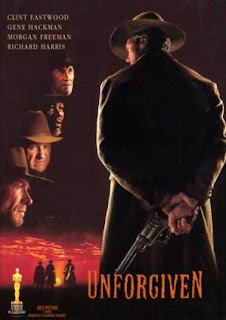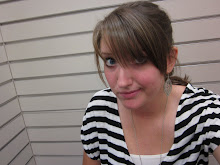Twenty-four years after the release of “Unforgiven,” Clint Eastwood is widely recognized as a decorated director, actor, and producer. He’s also a familiar Oscar contender for movies like “Mystic River,” “Million Dollar Baby,” “Letters from Iwo Jima” and “American Sniper.” To older audiences, he is The Man with No Name of the 60’s spaghetti westerns and Dirty Harry of the violent cop movies in the 70’s and 80’s. Clint Eastwood is a cultural icon.
“Unforgiven” is the hinge. It’s the springboard. It connects the famed cowboy of the mid 20th century to the award-winning artist of the 21st. And it’s brilliant that not only is this film an artistic masterpiece, it’s a Western.
Eastwood directs and stars in the story of William Munny, famed for his cold-blooded murders of the past and now a repentant widower raising two children. He’s left his life of thievery and violence for hog farming, though it’s apparent the profession doesn’t suit him well.
The crux of the plot centers around events occurring in 1800’s Big Whiskey, Wyoming. A reward is out to kill two cowboys who disfigured prostitute Delilah Fitzgerald (Anna Levine) after a lenient sentencing from local sheriff Little Bill Daggett (Gene Hackman). Munny is approached by the Schofield Kid (Jaimz Woolvett) to bring him out of retirement and partner up for one last ride. There are other characters along the road including Munny’s old friend Ned Logan (Morgan Freeman) and gunfighter English Bob (Richard Harris). But everything else is a side story. The film specifically zeroes in on Munny and Little Bill.
After watching it twice, what resonated with me the most may seem surprising. Certainly the sombre tone and the epic final showdown are noteworthy, as is the layered yet subtle performance of Clint Eastwood. No, it was the actual title of the movie that seemed to pack the biggest punch. It’s the four-syllable word: Unforgiven.
Forgiveness is a noticeable theme woven in the different storylines. The women refuse to forgive the cowboys. Little Bill refuses to forgive English Bob. Though Munny was forgiven by his late wife, he couldn’t forgive himself. It’s as though he tried to believe his wife by honoring her request to abandon his life of cruelty and violence. But when push came to shove, he quickly and naturally fell back into a routine of killing and living without remorse: the guilt that haunted and overshadowed him eventually overpowered him.
In fact, there are no real heroes in “Unforgiven.” There are certainly villains. Gene Hackman, who today is far-too underrated, won an Oscar for his performance as the twisted sheriff. We want him to die, but it’s still bittersweet when it’s at the expense of Munny’s ultimate betrayal of his vow to change. It seems unfair that Munny should live for killing while Logan died for not. But this is very thing that juxtaposes Munny’s final decision to kill Little Bill and sealed Munny’s fate as a damned, unforgiven soul.
This depth sets “Unforgiven” apart from most other Westerns. It’s a Western that can be honored and remembered because it isn’t about the violence and the gunslinging (though there’s plenty of violence to be had). It’s about complex characters with hopes, fears, and hearts. The cinematography of bleak grays and browns beautifully contributes to the dark tale. I was swept by the overall mood and caught up in deeper thoughts about morality and humanity. Can we be forgiven? Do we prevent ourselves from finding forgiveness? Do people change? 9/10
Other notes:Directed by Clint Eastwood
Won Academy Awards for Best Picture, Best Director (Eastwood), Best Supporting Actor (Hackman), and Best Film Editing (Joel Cox). Nominated for Best Actor (Eastwood), Original Screenplay (David Webb Peoples), Cinematography (Jack N. Green), Sound, and Art Direction
Ranked #98 in AFI’s Top 100 Years… 100 Films list in 1998, #68 in 2008.
Won Academy Awards for Best Picture, Best Director (Eastwood), Best Supporting Actor (Hackman), and Best Film Editing (Joel Cox). Nominated for Best Actor (Eastwood), Original Screenplay (David Webb Peoples), Cinematography (Jack N. Green), Sound, and Art Direction
Ranked #98 in AFI’s Top 100 Years… 100 Films list in 1998, #68 in 2008.



0 Comments